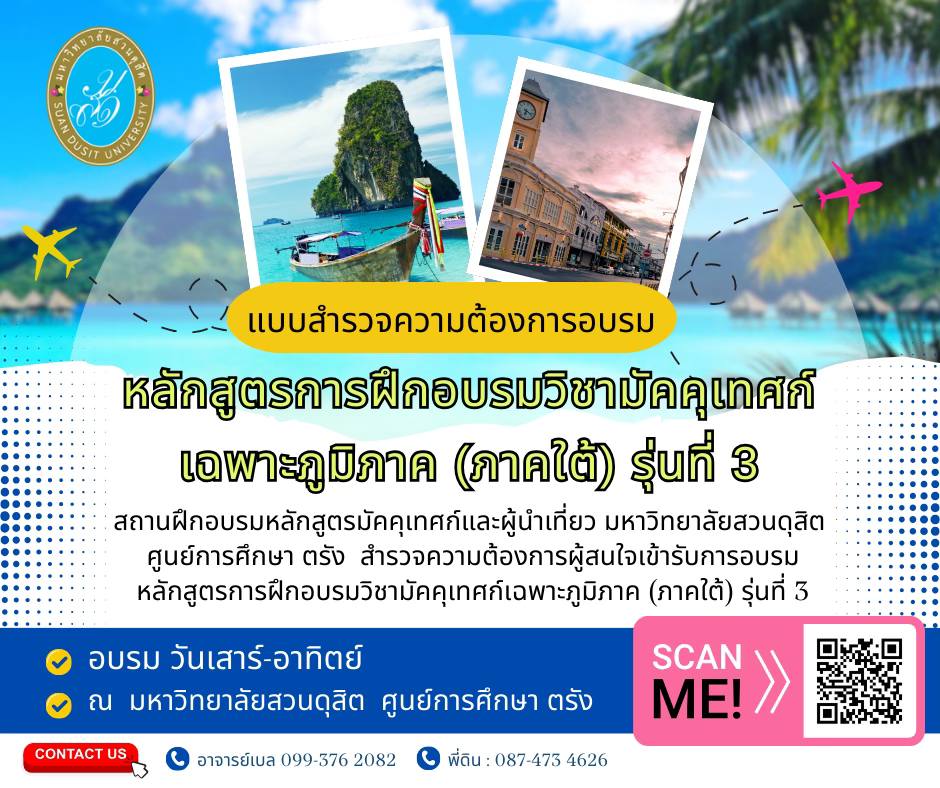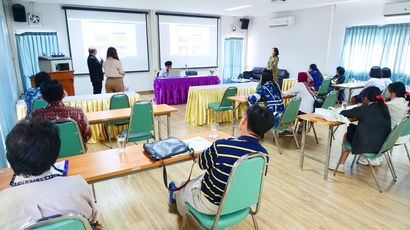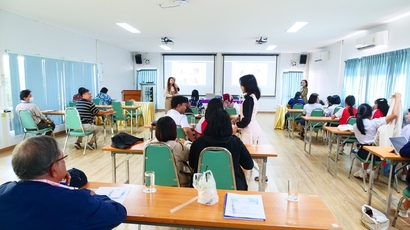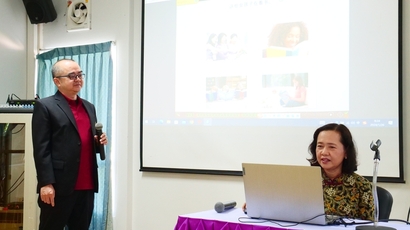
Suan Dusit University (SDU) has continuously played an active role in promoting community outreach and capacity building to support the sustainable management of marine resources and coastal tourism. Recognizing that sustainable tourism depends not only on natural conservation but also on human capacity, SDU integrates academic knowledge with local community development to strengthen the sustainability of Thailand’s coastal economies. In 2024, the university implemented a notable initiative — the “Chinese Language Training for Marine Tourism Services” — as a collaborative effort between the Confucius Institute, Suan Dusit University Suphan Buri Campus, and the Tour Guide and Tourism Training Center, Trang Education Center.


The training program was conducted on 26 January 2024 at Dusit Khajorn Hall, SDU Trang Education Center, located in Trang Province, a key marine tourism area along the Andaman coast. The primary objective of the program was to develop communication skills in the Chinese language for local tour guides, marine tourism operators, and service staff. This initiative aimed to improve the quality of hospitality and enable participants to communicate environmental and cultural values to international tourists — especially those visiting marine destinations. Through this process, the program directly contributed to promoting responsible tourism, marine environmental awareness, and sustainable coastal tourism management.

The full-day training session included specialized lessons on Chinese vocabulary for tourism services, role-play scenarios for guiding international visitors, and discussions on sustainable marine tourism practices. Participants also learned about case studies of eco-tourism in Trang Province — such as the Hat Chao Mai National Park and Koh Mook (Emerald Cave) — where the balance between tourism and marine ecosystem conservation serves as a model of sustainable practice. By integrating environmental education into language instruction, the activity effectively linked professional skills development with environmental stewardship and ocean literacy.
The initiative produced tangible outcomes across multiple dimensions:
- Environmental Awareness: Participants gained a deeper understanding of marine ecosystem conservation, learning how to minimize the environmental footprint of tourism activities on beaches and coral reefs.
- Economic and Social Impact: Trained local guides and operators applied their new language and communication skills to enhance service quality, attract international tourists, and generate greater community income through sustainable tourism.
- Community Engagement: The program was open to the public free of charge, encouraging broad participation from coastal communities and strengthening collaboration between the university and local stakeholders.
Through this initiative, Suan Dusit University has demonstrated its ability to link academic expertise with the needs of coastal communities, fostering a shared responsibility for sustainable marine resource management. The “Chinese Language Training for Marine Tourism Services” stands as direct evidence of SDU’s commitment to empowering local communities through education for sustainable development, while supporting the protection and sustainable use of marine and coastal ecosystems. The project exemplifies how higher education institutions can act as catalysts for sustainable development by integrating capacity building, environmental education, and responsible tourism into real community contexts.
Reference
